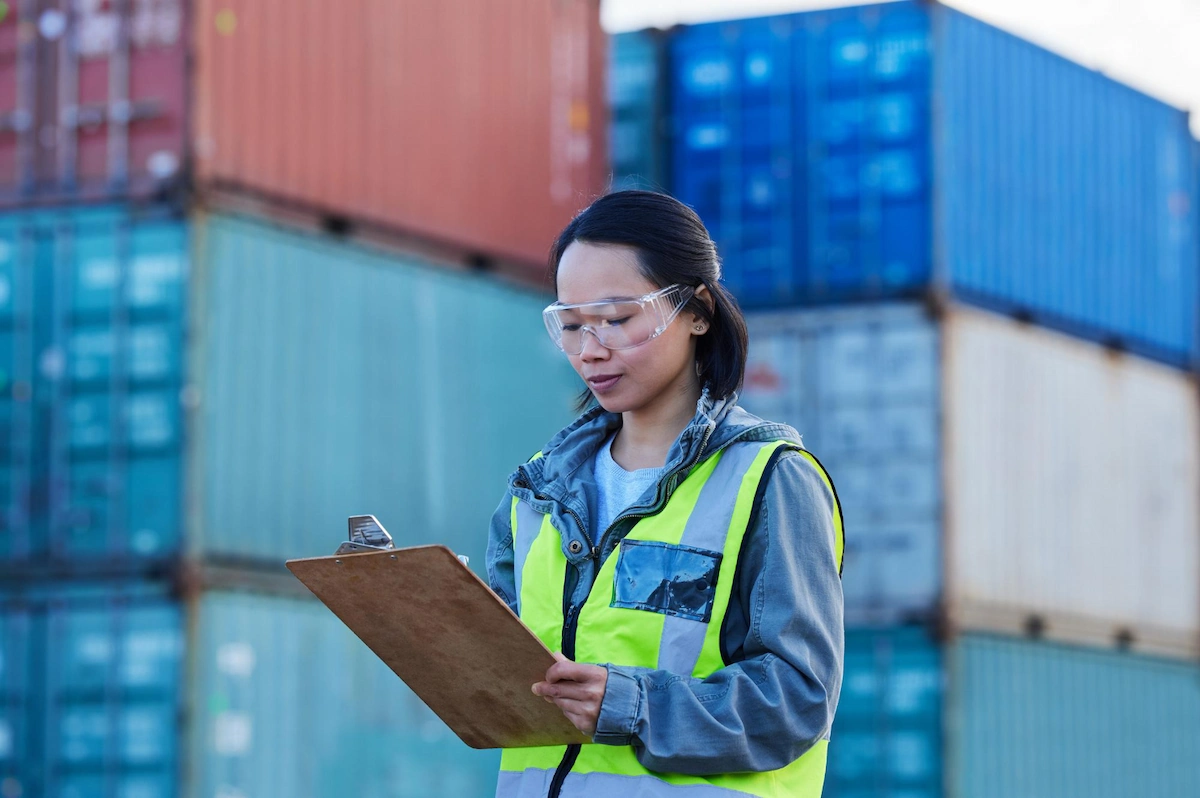.webp&w=3840&q=75)
22-08-2025
Logistics Management: Functions, Benefits, & Main Components
Logistics management is one of the important elements in businesses, including the petrochemical industry. It functions to manage the inflow and outflow of goods and ensures that the distribution runs efficiently until reaching the customers.
This article talks about logistics management, including its functions and benefits. So, read this article until the end to get the complete explanation.
What Is Logistics Management?

Logistics management is a process of planning and managing the goods, information, and service flows from the point of origin to the buyers. It involves material management, warehousing, packing, safety, and stock management.
This management is part of supply chain management, aiming to ensure that goods are delivered on time and in excellent condition to optimize efficiency and cost.
Logistics management helps you to improve the supply chain, improve competitive advantage, and reduce transportation and warehouse costs.
Functions of Logistics Management
Logistics management has several crucial functions in the business, such as:
- Budget management: Logistics management ensures that procurement follows the budget. If there is a mismatch, the procurement planning must be adjusted.
- Planning the company’s needs: Logistics management analyzes the priority scale, products used, and stock recording. This planning is based on budget constraints.
- Serving the customers: It gives the service that customers need.
- Forecasting demand: It predicts the timeline and amount of demand from customers. That way, you can prepare the right operational planning.
- Warehousing: This function records goods and raw materials stored in the warehouse and ensures that all products are stored in the appropriate place and category. In addition, it ensures that stock is available according to demand so that there is no excess or shortage of stock.
- Product packing: Logistics management also serves to package goods and ensure they are protected from damage during the distribution process.
- Product distribution: This management delivers products to customers according to the specified location and place. In this function, you need to determine the right delivery routes and methods.
Read also: Sustainable Infrastructure: Definition, Dimension, & Benefit
Components of Logistics Management

Logistics management involves agents, suppliers, distributors, packaging agents, and other parties. That’s why logistics management has a complex operational process. Here are the components of logistics management you must know:
1. Inventory Planning
Inventory planning ensures that there is enough stock in the warehouse to meet customer demand while keeping storage costs down. Inventory planning helps you prepare accurate orders, organize your warehouse, and increase productivity.
2. Fleet Management
The next component is fleet management. It manages the vehicles and mitigates the accident risk during the distribution process. It also improves efficiency and productivity, as well as reduces transportation costs.
3. Incoming Logistics
Incoming logistics can help you obtain high-quality products, reduce unused materials, lower overhead costs, and increase sales. Incoming logistics related to suppliers and businesses.
4. Outgoing Logistics
Outgoing logistics is the process of distributing final products to the customers from the warehouse. This component is related to how to deliver products to the end customers.
5. Demand Analysis
Demand analysis is important to evaluate and predict the demand for goods or services, ensuring availability. This analysis helps your business to predict future sales and meet customer needs.
You can analyze it through personal customer data, purchase history, and market segmentation data, determining strategic steps for your business.
Read also: Oil Refinery: Definition, Processes, and Its Functions
Benefits of Logistics Management
Logistics management gives some benefits for product distribution. Here is the complete explanation:
1. Improving Customer Service
Logistics management can provide products and services on time as orders come in and deliver them according to the timeline. It also ensures that the products are of high quality and protected from the risk of accidents during transit. This will certainly increase customer satisfaction.
2. Reducing Operational Cost
Logistics management helps you understand the business ecosystem and predict the demand in the future. This allows you to create plans in saving operational cost.
3. Increasing Profits
Logistics management can help you to gain a clear operational picture that improves customer relations and reduces the risk of dealing with excess stock. These benefits can increase the order fulfillment rate, which in turn increases the company's profits.
4. Increasing Intermodal Operations
Intermodal operations involve the use of modes and the distribution of products from consumers and suppliers. You might use specialized containers that can reduce risks in transit, such as refrigerated containers for food products. Intermodal distribution is also considered more affordable, reliable, and secure.
5. Optimizing Routes
The next benefit of logistics management is optimizing routing. In this case, you can choose the most efficient route by considering traffic patterns, fleet type, weather, and cargo being transported.
This will make the transportation cost and process more effective. Goods can also reach distributors or end consumers on time. As a result, you can improve customer satisfaction.
That concludes the information about logistics management you can learn. Logistics is one of the important components in the supply chain because it ensures that cargo reaches distributors and customers safely. Therefore, proper management and a fleet are needed.
If you look for a logistics solution for chemicals and LPGs, Chandra Asri Group can be your choice. We offer a marine vessel business operated by PT Chandra Shipping International and PT Marina Indah Maritim, which is accommodated by nine chemical and gas carriers with a capacity of up to 106,650 DWT (the number is likely to grow over time).
Not only sea freight, but Chandra Asri Group also serves land transportation with PT SGC Barito Logistics and PT Chandra Cold Chain, operating 155 trucks.
Read also: 7 Port Functions for the Economy and Trading, Must Note!
.png&w=3840&q=75)
.png&w=3840&q=75)